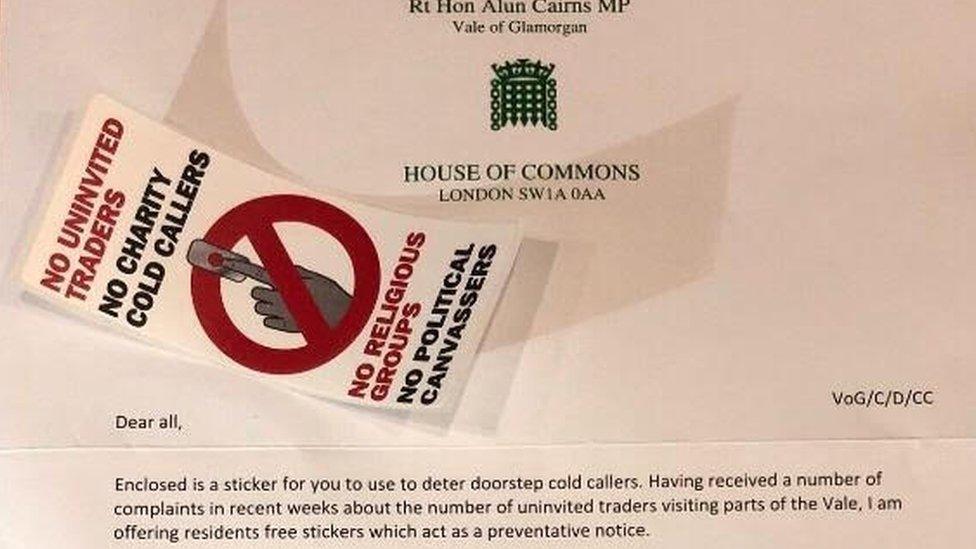Welsh Secretary Alun Cairns' no political cold-callers sticker criticised
- Published

"No uninvited traders, no charity cold callers, no religious groups, no political canvassers," the sticker read
The Welsh secretary has been criticised for mailing out a sticker for his constituents' front doors warning political canvassers from cold calling.
The sticker lists campaigners alongside uninvited traders and religious groups.
Labour is to complain about the letter, accusing Alun Cairns to trying to block rivals from speaking to voters.
A spokesman for Mr Cairns said he wanted to provide constituents with a "proven means of reducing the number of doorstep callers".
Mr Cairns represents the Vale of Glamorgan, a marginal constituency where there were 2,190 votes between the Conservatives and Labour at the 2017 general election.
The sticker is accompanied by a letter on House of Commons notepaper, and was sent out in an official Commons envelope.
"These preventative notices have dramatically reduced the number of cold callers for those already using them," Mr Cairns wrote in the letter.
Alun Cairns was re-elected as MP for the Vale of Glamorgan in 2017
Labour Vale of Glamorgan prospective candidate Belinda Loveluck-Edwards said: "It appears that Alun Cairns is using public money to try and block his political opponents from speaking to voters. This must be investigated.
"This is a deliberate attempt to present a false equivalence between genuine political canvassing and those who would wish to scam vulnerable people."
Labour is making a complaint to the parliamentary standards commissioner about the letter.
Liberal Democrat candidate for the constituency Sally Stephenson said it was a "complete waste of tax-payers' money", and "another cynical attempt by the Conservatives to shut down democratic debate".
Under the code of conduct MPs cannot use public resources in a way that would "confer undue advantage on a political organisation".
A spokesman for Mr Cairns said: "There have been a number of complaints about the increase in nuisance callers and the rise of the doorstep economy in the Vale of Glamorgan.
"Ahead of the clocks going back, Alun wants to provide constituents with a proven means of reducing the number of doorstep callers."
- Published15 October 2019
- Published27 April 2019